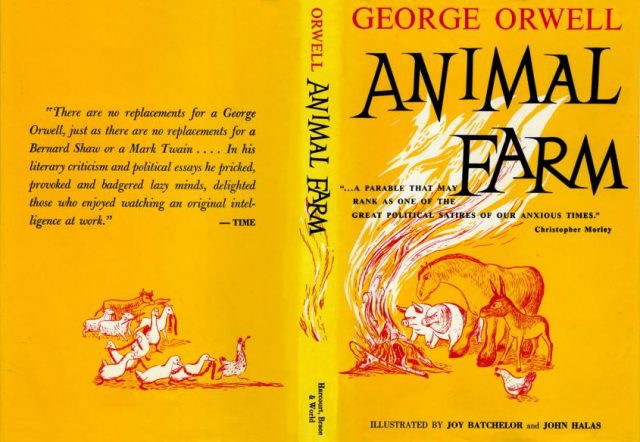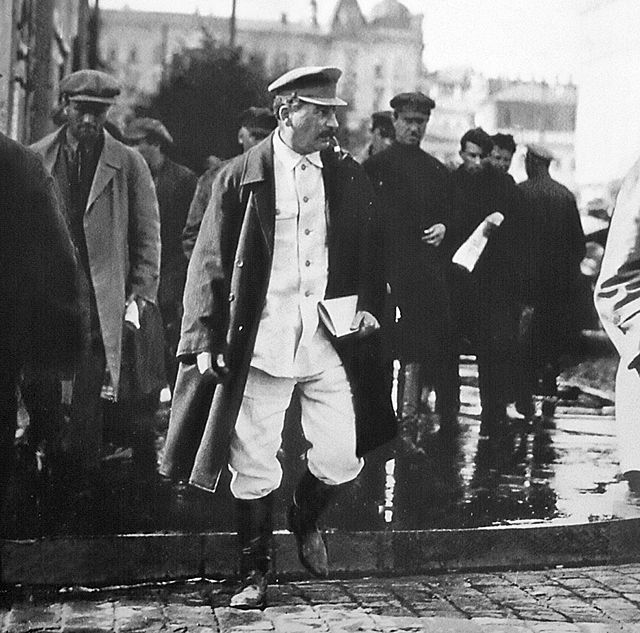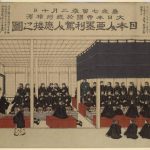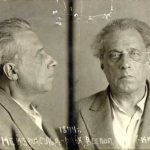Marcus Castillo, Viviana Lozano, Juan Martinez, Gissell Perez, Marla Zarate
Veterans Memorial High School
Group Performance
Senior Division
Read the Group’s Process Paper
There is a saying that fact is stranger than fiction. So when a group of students from Veterans Memorial High School wanted to do a Texas History Day project on the horrors of Joseph Stalin, they turned to one of the most famous anti-totalitarian novels, George Olwell’s Animal Farm. Using Olwell’s characters, the group performed a series of music and dance numbers to capture the truly “Orwellian” nature of Stalin’s reign. In their process paper, they described their creative and historical aims:
This year we were presented with the opportunity to participate in National History Day. When we learned this year’s topic was “Rights and Responsibilities” our group collaborated on many ideas. After several days of much consideration we stumbled upon an idea of the cruelties of Joseph Stalin in a novel we were reading in English class. Animal Farm by George Orwell was an anti-totalitarian novel based on the Russian Revolution and its aftermath. We all agreed it was a brilliant topic. yet we still needed to find the connection between our chosen topic and the theme for this year. As a group we conducted research on Orwell’s philosophy and his novel and we found how it was parallel to the real life events from Joseph Stalin. We decided to name our project “An Orwellian Interpretation of Stalin’s Responsibility to Secure Russian Rights”.
We are all dancers and performers and were interested in expressing our interpretation by dance and song. Also, being inspired by a novel had a great impact on our decision; after all, the characters in the novel were animals. We wanted to incorporate as much as possible from the novel into our project, including the symbolism between the animals and the people they were parallel to in history. We also wanted to voice our research in a way similar to the way George Orwell voiced it out in his book.

1950s dustcover for George Orwell’s 1945 novel, Animal Farm (Image courtesy of Michael Sporn Animation)
Our project, though inspired by a novel, is focused solely on the responsibilities Joseph Stalin had to restrict Russian rights. A leader’s responsibility may be to protect his citizens, but Stalin took it so far as to deprive them from any rights because of his paranoia and greed for power. Orwell’s interpretation throughout his novel was based on that philosophy, that one leader`s responsibilities may be corrupted because of his hunger for power, As a group we completely agreed with his philosophy.
The latest Texas History Day projects on NEP:
A website on the global influence of one man’s non-violent philosophy
A website on “America’s Dirty Little Secret”
And a documentary on one man’s attempt to fight injustice in World War II America





